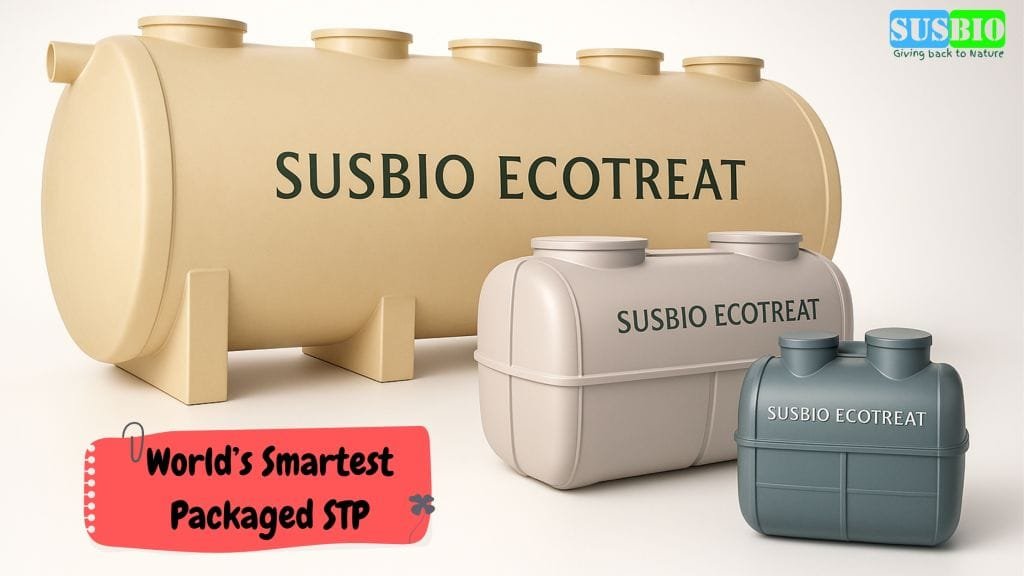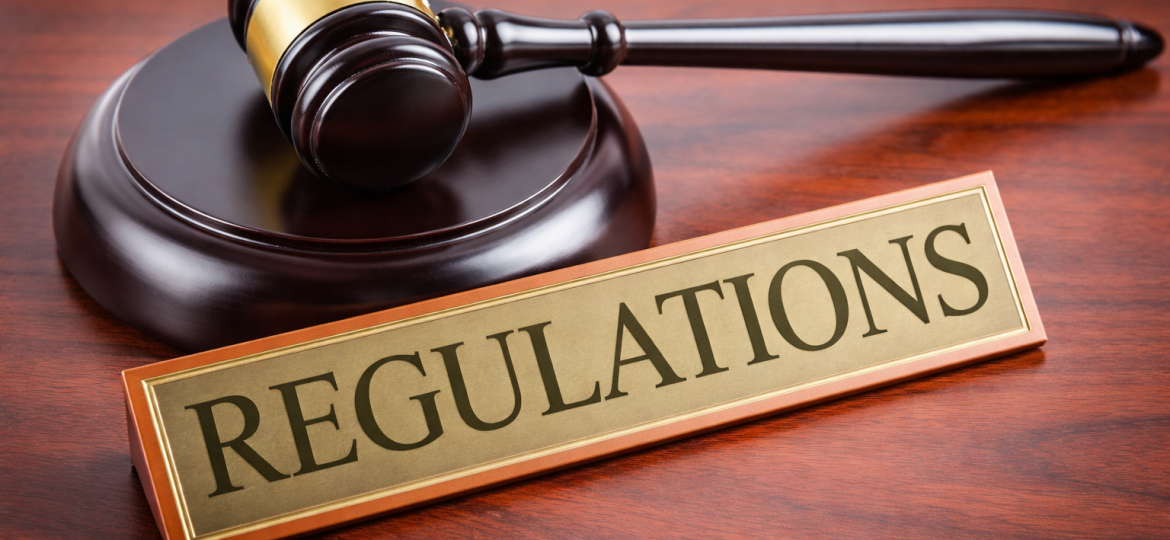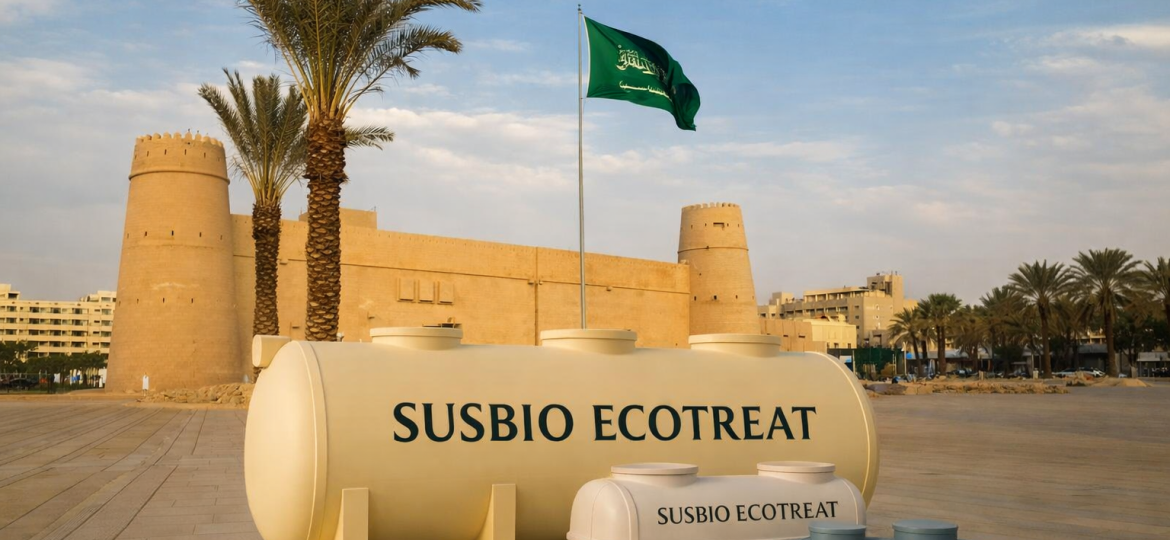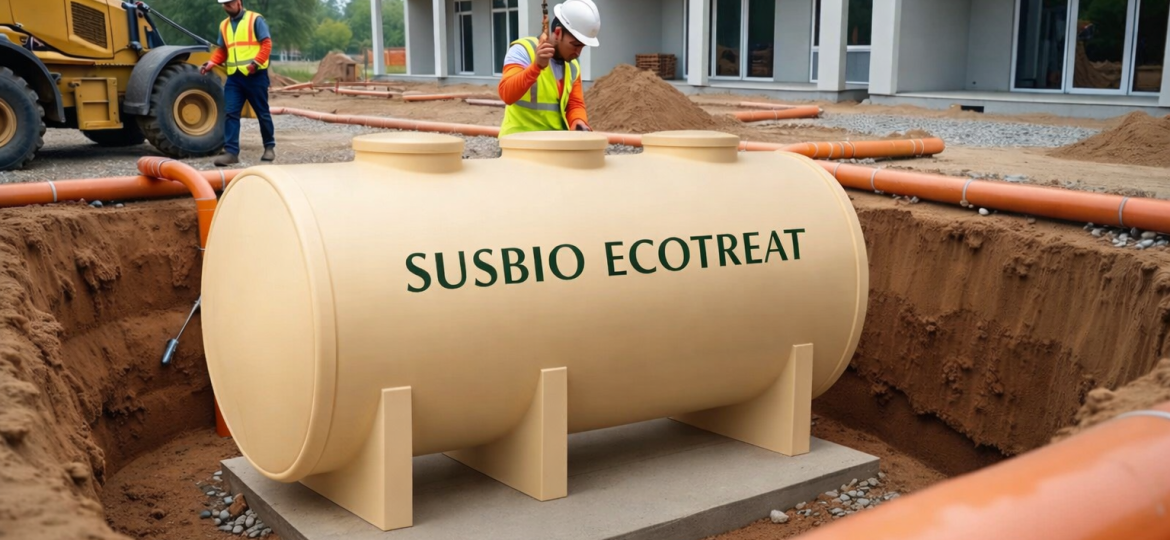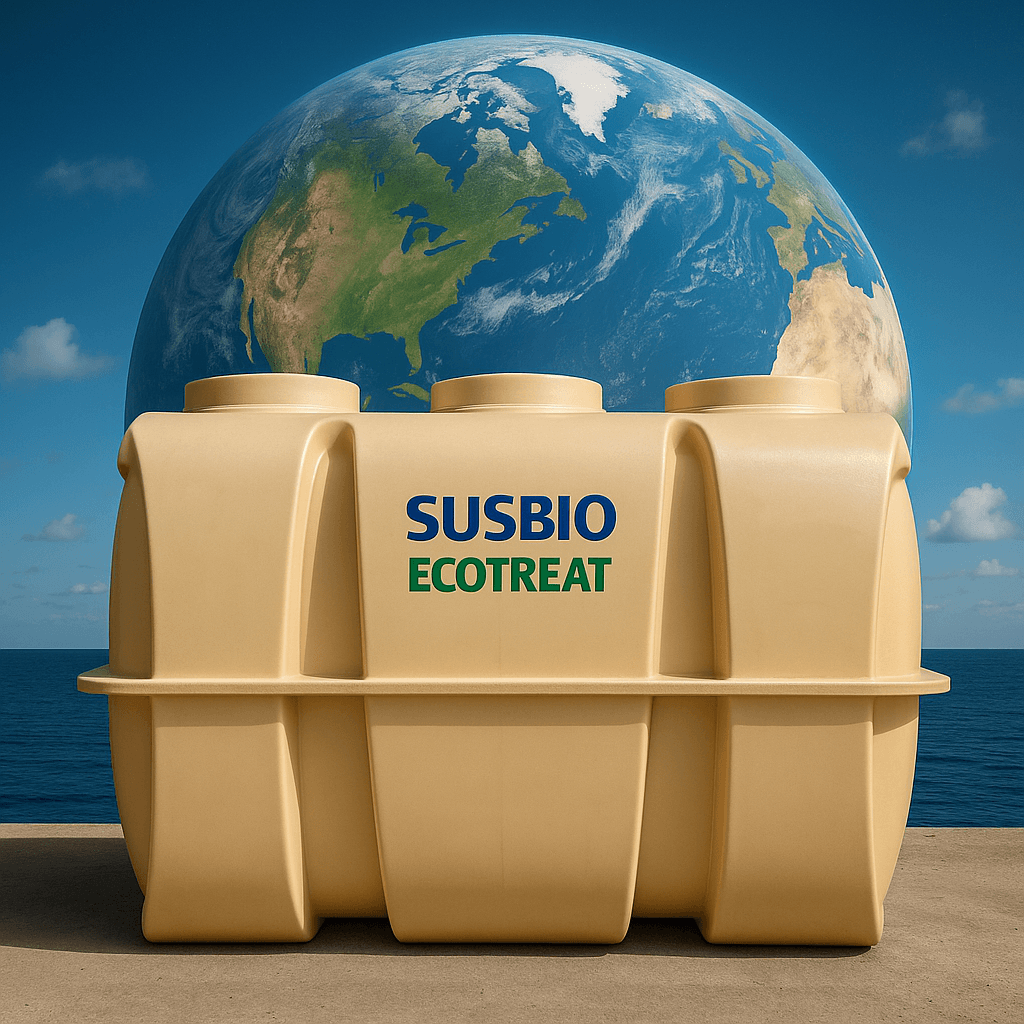The United Arab Emirates faces a major water challenge due to its lack of water resources, making sewage treatment plants crucial for eco-friendly development. The UAE’s freshwater resources face constant pressure from its expanding population and naturally low rainfall. Smart wastewater management solutions now provide effective ways to tackle these challenges.
Modern sewage treatment plants deliver impressive results. These facilities remove over 95% of pollutants through multiple treatment phases. The plants play a vital role in water conservation by recycling wastewater that helps meet future freshwater demands and safeguards existing water sources. On-site wastewater systems use a decentralized approach to reuse treated water for irrigation and toilet flushing, which cuts down freshwater usage by a lot. Dubai’s smart water solutions showcase how innovative technologies like nanofiltration and reverse osmosis are transforming water management to be more sustainable.
Dubai’s Water Challenges and the Role of Sewage Treatment
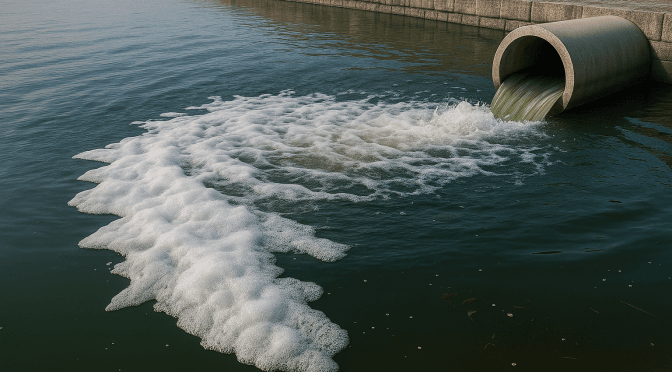
Dubai struggles with unique water resource management challenges. Sewage treatment plays a vital role in its sustainability strategy. The city can’t rely on natural water sources like other regions, so it needs new ways to meet its growing water needs.
Low Rainfall and High Water Demand in Dubai
Dubai’s harsh climate creates major water management hurdles. The city gets less than 100mm of rain yearly, which means natural freshwater is hard to come by. Dubai’s residents use about 550 liters of water daily—almost twice what people use elsewhere in the world. This huge gap between what nature provides and what people need creates problems that need technical fixes.
The city keeps growing, and so does its thirst for water. New buildings, tourists, and housing areas need more water than ever before. Natural sources can’t keep up with these demands. Dubai needs better ways to manage its water beyond just asking people to use less.
Dependence on Desalination and Its Limitations
Dubai uses desalination to produce over 90% of its drinking water. While this works well to create clean water, it has some big drawbacks. The process uses lots of energy—about 3-5 kWh for each cubic meter of water. This leads to higher costs and more carbon emissions.
The plants pump very salty water back into the Arabian Gulf. This brine has almost double the salt of normal seawater and creates areas where sea creatures don’t survive well. These environmental problems and high energy needs show why desalination alone won’t solve Dubai’s water issues.
Importance of Sewage Treatment in Urban Water Strategy
Sewage treatment works alongside desalination as part of Dubai’s water management plan. Modern treatment plants help in two ways—they stop pollution and create usable water. Advanced treatment turns wastewater into treated sewage effluent (TSE) that works great for watering plants, cooling buildings, and running industrial processes.
It costs much less to treat wastewater than to remove salt from seawater. The city spends 30-50% less on treated wastewater compared to desalinated water. This saves a lot of money. Dubai keeps building more wastewater treatment facilities because each recycled drop means less work for desalination plants.
Sewage treatment helps Dubai in many ways. The city creates a stronger and more sustainable water system by recycling wastewater as part of its urban planning. This approach uses resources better and helps protect the environment.
Environmental Benefits of Modern Sewage Treatment Plants
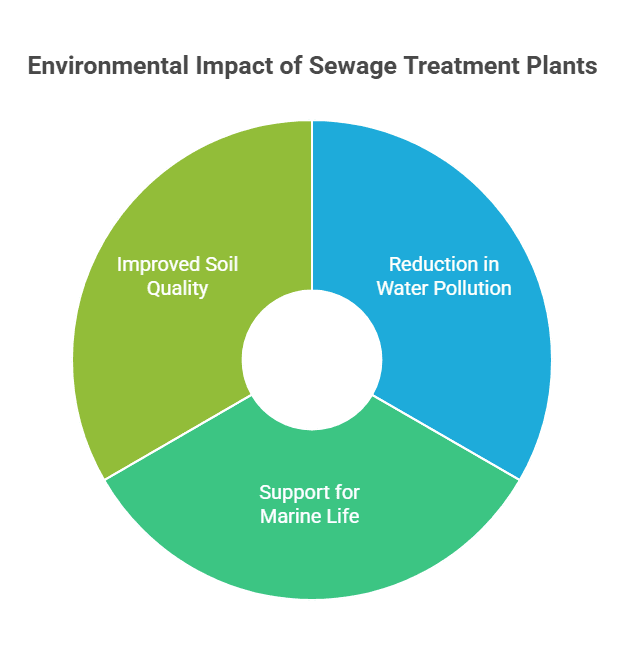
Modern sewage treatment plants revolutionize environmental protection through advanced wastewater management techniques. These facilities turn harmful waste into valuable resources and create an integrated approach that safeguards ecosystems in Dubai.
Reduction in Water Pollution from Industrial Effluents
Sewage treatment plants remove over 95% of pollutants from wastewater before its release into the environment. The facilities eliminate contaminants of all types including nutrients like nitrogen and phosphorus, pharmaceuticals, personal care products, microplastics, and new pollutants. This comprehensive treatment stops eutrophication—a process where excessive algae growth from nutrient pollution depletes oxygen in water bodies.
Dubai Municipality’s hazardous industrial wastewater treatment plant in Jebel Ali processes 600 cubic meters of liquid waste daily. The facility converts 75% of treated waste into irrigation-grade water, which reduces the need for drinking water resources. Industrial effluents would contaminate urban water sources with lead, mercury, arsenic, and cadmium without proper treatment.
Support for Marine and Aquatic Life in the Gulf
Raw sewage discharge creates hazards for marine ecosystems, especially when you have Dubai’s sensitive desert and coastal environments. Excessive nutrients in wastewater trigger algal blooms that deplete oxygen and create “dead zones” where aquatic life cannot survive.
Treated effluent helps maintain oxygen balance in aquatic environments and supports fish and other marine species. The treatment plants protect coral reefs and marine biodiversity in the Arabian Gulf by stopping pollutant discharge. This protection matters because the Gulf faces stress from multiple pollution sources, including desalination brines that harm marine biodiversity.
Improved Soil Quality through Treated Sludge Reuse
Sewage treatment plants produce biosolids—treated sludge rich in nitrogen, phosphorus, and organic matter that enhances soil fertility. Advanced treatment methods like heat processing, anaerobic digestion, and composting eliminate pathogens and make this material valuable for agriculture.
Research shows that treated water treatment plant sludge increases clay soil’s bearing capacity by 1.69 times. These biosolids work as natural fertilizers and reduce dependence on synthetic alternatives that harm the environment. Ajman’s treatment plant produces enough nitrogen-rich sewage sludge to support about 3,200 hectares of agricultural land.
Economic and Operational Advantages for Dubai Businesses
Sewage treatment plants not only protect the environment but also provide huge financial benefits to Dubai’s business sector. These modern facilities help businesses save money and generate valuable resources.
Lower Water Procurement Costs via Reuse
Dubai businesses save a lot on water expenses through wastewater recycling. The emirate reuses 90% of its water now, which saves over AED 2 billion yearly. Companies that use central cooling systems benefit greatly from recycled water. In 2022, cooling stations used more than 6 million cubic meters of reclaimed water and saved about 47% (AED 7.1 million) on costs.
Companies can cut down their reliance on city water by installing their own wastewater treatment systems. These systems work well for non-drinking water needs like watering plants or running cooling towers. The setup costs are high at first, but businesses usually recover their investment within 18-24 months. This works especially well for places that use lots of water, like factories, hostels, and schools.
Energy Recovery from Anaerobic Digestion
Smart facilities turn waste into energy through anaerobic digestion, which breaks down organic matter to make biogas. This clean energy helps reduce dependence on fossil fuels and supports green initiatives. Dubai Municipality has started using this process in its main treatment plants. The Warsan treatment facility now gets about 50% of its electricity from biogas.
The advantages go beyond just making energy:
- Less waste means lower transportation and landfill costs
- Treated sludge becomes safer to reuse
- Better control of smells and harmful organisms makes work environments safer
Reduced Penalties through Regulatory Compliance
Following regulations helps businesses avoid heavy financial penalties. Companies that don’t treat wastewater properly risk AED 100,000 fines for illegal dumping. The punishment can get worse – from losing their license to closing down for six months or permanently.
Money problems from breaking these rules can destroy a business. Some companies learned this the hard way – 39 sewage water transport companies racked up AED 20.8 million in fines over three years. One company couldn’t even renew its trade license because it owed AED 1.5 million in fines. Good sewage treatment systems aren’t just good for the environment – they’re essential for staying in business.
Public Health and Community Impact of Wastewater Treatment
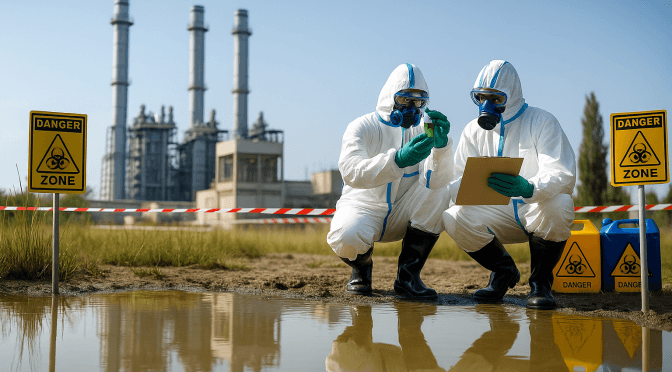
Wastewater management serves as the life-blood of public health protection in Dubai’s urban landscape. The benefits of sewage treatment plants extend deep into community wellbeing. They create safer environments for residents and visitors alike.
Prevention of Waterborne Diseases in Urban Areas
Dangerous pathogens live in untreated wastewater. These cause serious illnesses like cholera, typhoid, hepatitis A, and gastrointestinal infections. Global health statistics show waterborne diseases cause about 3.1% of all deaths worldwide. These diseases make up 80% of all global diseases and affect communities that lack proper treatment infrastructure.
Dubai’s advanced sewage treatment facilities eliminate these health threats through detailed disinfection processes. The treatment plants remove harmful bacteria, viruses, and parasites that could spread through water systems. This protection becomes especially significant for vulnerable populations. Diarrheal disease remains the second leading cause of death in children under five years old globally.
Cleaner Recreational and Agricultural Water Sources
Treated wastewater can’t be used for drinking. However, it offers many safe applications that benefit Dubai’s residents. The water becomes translucent and odorless, making it suitable for domestic purposes like toilet flushing and household cleaning.
Quality monitoring remains a concern. A study of an artificial lake in Dubai supplied with treated wastewater showed microbiological contamination exceeded national standards. This highlights the need for continuous testing. About 40% of tested reclaimed wastewater samples meet local and international standards for unrestricted irrigation.
Support for Sustainable Urban Development
Dubai’s wastewater infrastructure stimulates urban growth through smart resource recovery. The city’s treatment plants handle huge volumes each day. These facilities saw a 37.4% year-over-year increase in processed wastewater, which saved AED 340,000.
The treated water helps fulfill Dubai’s ambitious landscaping vision. It maintains lush environments despite the arid climate. Modern treatment facilities work alongside urban planning to create resilient communities. Public health and environmental protection go hand-in-hand. Dubai uses technologies like SCADA systems and GPS tracking of service vehicles to maintain consistent quality standards across its wastewater management network.
SUSBIO and SUSBIO ECOTREAT – Redefining Sewage Treatment for Dubai
About SUSBIO
SUSBIO is a leading provider of sustainable wastewater solutions, offering prefabricated, modular, and containerized STPs designed for residential, commercial, and industrial applications. These systems comply with Dubai Municipality standards, CPCB norms, and global water reuse guidelines.
SUSBIO ECOTREAT – Smart, Sustainable, and Cost-Efficient
Key Features:






Applications:
-
Residential complexes, hotels, industrial estates, hospitals, malls
-
Smart city developments and eco-friendly communities
Benefits for Dubai:
-
90% water reuse, reducing reliance on desalination
-
50% lower O&M costs
-
ROI in less than 24 months
-
Compliance with Dubai Green Building Regulations
Additional Key Parameters
-
Treated Water Quality: BOD < 10 mg/L, COD < 50 mg/L, TSS < 10 mg/L
-
Emergency Handling: Handles shock loads during peak demand
-
Future Integration: Compatible with AI-driven water analytics and Dubai Smart City initiatives
Conclusion
Dubai’s future depends on smart water management, and sewage treatment plants are central to this strategy. By recycling wastewater, STPs reduce desalination pressure, cut costs, and protect the environment. With advanced solutions like SUSBIO ECOTREAT, Dubai can achieve sustainability, compliance, and economic efficiency—turning wastewater into a valuable resource for urban growth.
Sewage treatment isn’t just about waste management—it’s the foundation of Dubai’s resilient, eco-friendly future.
Top 5 FAQs
1. Why are sewage treatment plants important for Dubai?
They recycle wastewater for irrigation, cooling, and industrial use, reducing freshwater demand and reliance on desalination.
2. What makes SUSBIO ECOTREAT better than traditional STPs?
It’s modular, IoT-enabled, energy-efficient, and requires minimal maintenance, offering 50% lower operating costs.
3. Can treated water be reused in Dubai?
Yes. Treated water meets Dubai Municipality standards for non-potable uses like landscaping and flushing.
4. How does installing an STP save money for businesses?
Businesses cut water bills by 30–50% and avoid heavy fines for non-compliance.
5. Is installing an STP mandatory in Dubai?
Yes. Dubai Municipality requires STPs for projects above specified wastewater thresholds to meet environmental norms.


